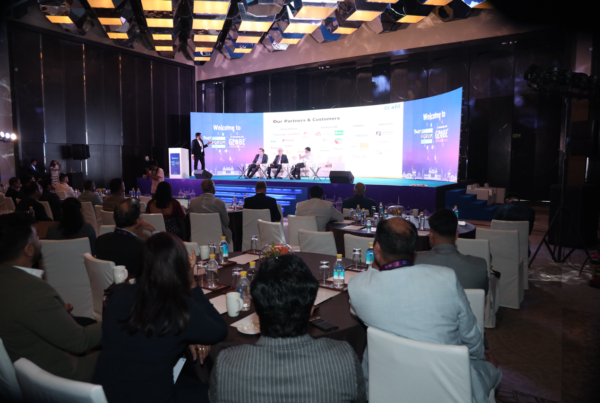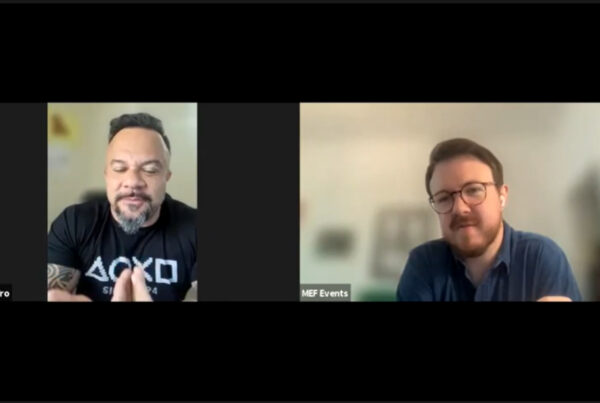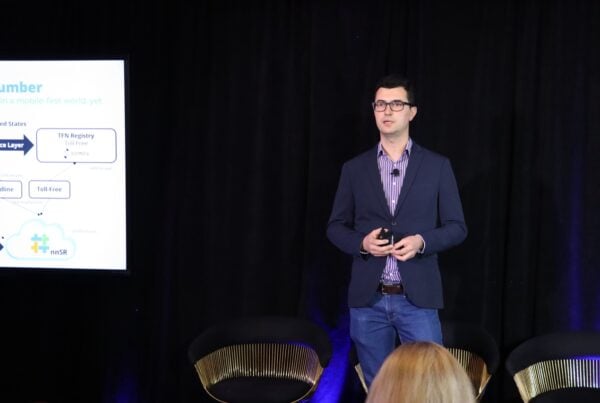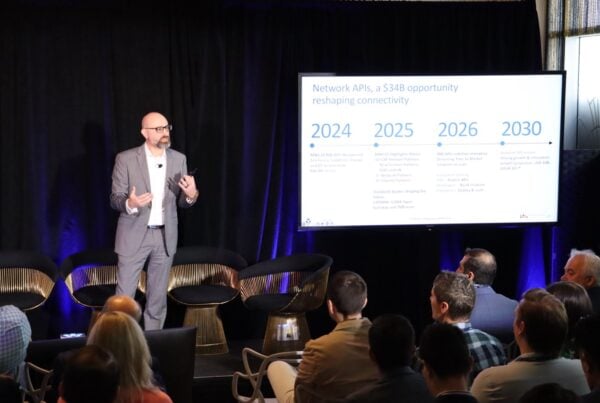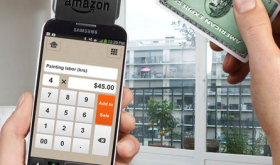MEF BUSINESS NEWS 25 APR 2025 China is weighing a suspension of its 125% tariffs on key US imports, as pressure mounts from rising costs in its own economy — Bloomberg reports citing people familiar with the matter. The suspension would include medical equipment, industrial chemicals like ethane, and even aircraft leases. The move mirrors recent US exemptions for electronics from its 145% China tariff, suggesting a potential cooling in trade tensions. Beijing is also reviewing tariff waivers for semiconductor-related goods, although memory chips, including those from Micron, remain excluded. Talks remain unofficial, but signs point to both sides quietly seeking off-ramps as industries struggle under escalating levies. ———————————————————— UK consumer confidence has dropped to its lowest level since late 2023, as Donald Trump’s tariff war fuels inflation fears. GfK’s confidence index fell four points in April to -23, with expectations for the economy plunging to -37. Rising household costs—from council tax to utility bills—are piling pressure on consumers, while warnings of renewed price hikes linked to US trade policies add to the gloom. Economists say shaken confidence could hit spending and undo recent gains. Inflation is expected to tick back up to 3.7% this summer, raising fears of a fresh cost-of-living squeeze. ——————————————————— Bank of England Governor Andrew Bailey warns the UK faces a “growth shock” from Trump’s escalating tariffs, calling trade policy a new threat to economic stability. Speaking at the IMF meetings in Washington, Bailey said while recession isn’t imminent, the Bank is closely watching the impact on growth. Chancellor Rachel Reeves signaled openness to targeted tariff cuts to secure a US-UK trade deal, while ruling out compromises on food standards. With a 25% tariff on UK car exports looming, and US trade tensions slowing global growth, officials are pursuing a cool-headed, dialogue-based approach to avoid retaliation. ———————————————————— Despite global market jitters from the US-led trade war, many financial leaders at this week’s IMF spring meetings dismissed fears of a looming crisis. Standard Chartered’s José Viñals and IMF officials cited strengthened bank capital buffers and the absence of institutional failures as signs of resilience. While volatility has spiked and recession concerns persist, regulators argue current turmoil doesn’t mirror 2008 conditions. Still, calls to preserve post-crisis regulations are growing, with the Financial Stability Board urging G20 nations to protect financial safeguards — even as industry lobbyists quietly eye deregulatory openings amid signs of market calm. —————————————————— Corporate America is bracing for a slowdown as tariff uncertainty roils the economy, though. CEOs from industries like airlines, auto, and consumer goods are warning that President Trump’s shifting trade policies are making it nearly impossible to plan ahead. American Airlines, Southwest, and Alaska Air have already softened their travel forecasts as consumers pull back on spending due to rising costs. Auto giants like GM and Toyota are pushing back against a looming 25% tariff on car parts, which could make buying and repairing cars more expensive. Even household names like Procter & Gamble are considering price hikes on products like Pampers and Tide. With economic forecasts in limbo, companies are now forced to operate in a fog of unpredictability, which is already causing anxiety in consumer spending—from electronics to vehicles—amid fears that costs will surge. The tariff-induced uncertainty is not just a threat to growth, but to the stability of everyday spending in America’s consumer economy. —— —— MEF MOBILE NEWS 25 APR 2025 Apple is fast-tracking a major supply chain shift—aiming to build every iPhone sold in the U.S. in India by next year, the Financial Times reports. Apple’s pivot could double India’s iPhone output and reshape the global mobile ecosystem, cutting deep into China’s role in smartphone manufacturing. While final assembly may move to India, Apple still relies on Chinese suppliers for most components. It’s a high-stakes bet to protect iPhone pricing, profits—and its U.S. market dominance. ———————————— The $350 billion U.S. digital ad market is bracing for impact as Trump’s tariffs spark early signs of a slowdown—hitting mobile first, according to the Wall Street Journal. Analysts say mobile ad platforms like Meta and Google, which dominate digital spend, are seeing cutbacks as sectors like e-commerce, auto, and fashion conserve cash. Chinese mobile-first platforms like Temu and Shein are pulling ads amid 100%+ tariffs and the end of the $800 de minimis loophole, threatening billions in mobile ad revenue. With small businesses moving fastest to slash spend, the mobile ad ecosystem—usually a growth engine—is now showing signs of contraction. ———————————— Nokia’s new CEO, Justin Hotard, has signaled that the company may increase its US manufacturing to offset the impact of tariffs, which could cost Nokia up to €30 million in operating profits this quarter. With 90% of US communications relying on Nokia’s tech, Hotard is eyeing potential expansions to ensure resilience and growth in the competitive US market. Nokia currently operates five manufacturing facilities in the US, including semiconductor plants in California. As Nokia navigates tariff challenges, its moves to boost local production could influence its position in the rapidly evolving mobile infrastructure ecosystem. ———————————— The European Commission has banned its officials from meeting lobbyists representing Huawei amid a corruption probe into the company’s activities in Brussels. The ban extends to intermediaries, preventing Huawei from advancing its interests through lobbyists. The investigation follows allegations of bribery, including offering gifts and invitations to European Parliament members. The move could disrupt the company’s influence in European policy decisions, particularly in tech regulation and trade relations, which could indirectly impact the mobile ecosystem as companies in the sector navigate a more scrutinized landscape. ————————————— NetEase is seeing major executive changes as Simon Zhu, the company’s president for global investments and partnerships, departs after 12 years. His exit follows others in the gaming division, amidst a strategy to cut costs and shift focus to more profitable projects. As NetEase pulls back investments in new games, this is raising questions about the future of its mobile gaming efforts, especially as the company looks to focus on maintaining and improving existing titles. With the gaming market becoming increasingly competitive, these changes could signal a recalibration of NetEase’s mobile strategy, especially as they face rising challenges from both local and global competitors. —— —— MEF TECH NEWS 25 APR 2025 Alphabet crushed Q1 expectations with a 46% profit jump and $90B in revenue—thanks to strong Google Search performance and surging demand for AI-powered cloud services. Despite headwinds from Trump’s trade war and falling ad spend from Chinese e-commerce giants, AI Overviews in Search helped boost engagement without hurting ad monetization. Shares popped 4% after hours, with Alphabet also announcing another $70B buyback. But risks remain: tariffs, recession fears, and antitrust threats could cloud what was otherwise a stellar quarter for Google’s parent. ——————————- Baidu is shaking up the AI market, unveiling upgraded models and slashing prices in a bid to challenge rivals like Alibaba and DeepSeek. The company introduced the Ernie 4.5 Turbo and Ernie X1 Turbo, promising faster, cheaper AI solutions for developers. The 4.5 Turbo sees a whopping 80% price drop, while the X1 Turbo—Baidu’s answer to DeepSeek—is now half the price of its predecessor. With these moves, Baidu’s shares surged by over 5% in Hong Kong. The company also launched Xinxiang, a new AI platform designed to automate tasks, putting pressure on competitors like Manus AI. The push is part of Baidu’s strategy to maintain its position in China’s increasingly competitive AI landscape. The game is on! —————————— According to the Financial Times’ Lex column, Elon Musk may be bullish on deploying a million Optimus humanoid robots by 2030—but tariff troubles are jamming the gears. Global robotics giants like ABB and Fanuc face weak demand and tangled supply chains, with key parts like actuators still reliant on China. Even Musk admits sourcing magnets is a pain. With robots slowed by geopolitics, the Lex team wryly notes this might be one case where tariffs actually preserve American jobs—at least until the bots catch up. —————————— President Trump is offering an exclusive dinner with him at his Virginia golf club to the top 220 investors in his memecoin, $TRUMP. The catch? You need to buy a bunch of his coin to get in, making it a literal “pay-to-play” deal. And as if that wasn’t enough, the memecoin’s price surged 60% after the announcement—because who wouldn’t want to dine with the sitting president, right? Critics are raising eyebrows over the ethical implications, especially since Trump personally profits as the coin’s value rises. But hey, if you’re into crypto and the chance to rub elbows with the commander-in-chief, this is your moment—just make sure you bring a little extra to the dinner table! —— ——
MEF BUSINESS NEWS 25 APR 2025 China is weighing a suspension of its 125% tariffs on key US imports, as pressure mounts from rising costs in its own economy — Bloomberg reports citing people familiar with the matter. The suspension would include medical equipment, industrial chemicals like ethane, and even aircraft leases. The move mirrors recent US exemptions for electronics from its 145% China tariff, suggesting a potential cooling in trade tensions. Beijing is also reviewing tariff waivers for semiconductor-related goods, although memory chips, including those from Micron, remain excluded. Talks remain unofficial, but signs point to both sides quietly seeking off-ramps as industries struggle under escalating levies. ———————————————————— UK consumer confidence has dropped to its lowest level since late 2023, as Donald Trump’s tariff war fuels inflation fears. GfK’s confidence index fell four points in April to -23, with expectations for the economy plunging to -37. Rising household costs—from council tax to utility bills—are piling pressure on consumers, while warnings of renewed price hikes linked to US trade policies add to the gloom. Economists say shaken confidence could hit spending and undo recent gains. Inflation is expected to tick back up to 3.7% this summer, raising fears of a fresh cost-of-living squeeze. ——————————————————— Bank of England Governor Andrew Bailey warns the UK faces a “growth shock” from Trump’s escalating tariffs, calling trade policy a new threat to economic stability. Speaking at the IMF meetings in Washington, Bailey said while recession isn’t imminent, the Bank is closely watching the impact on growth. Chancellor Rachel Reeves signaled openness to targeted tariff cuts to secure a US-UK trade deal, while ruling out compromises on food standards. With a 25% tariff on UK car exports looming, and US trade tensions slowing global growth, officials are pursuing a cool-headed, dialogue-based approach to avoid retaliation. ———————————————————— Despite global market jitters from the US-led trade war, many financial leaders at this week’s IMF spring meetings dismissed fears of a looming crisis. Standard Chartered’s José Viñals and IMF officials cited strengthened bank capital buffers and the absence of institutional failures as signs of resilience. While volatility has spiked and recession concerns persist, regulators argue current turmoil doesn’t mirror 2008 conditions. Still, calls to preserve post-crisis regulations are growing, with the Financial Stability Board urging G20 nations to protect financial safeguards — even as industry lobbyists quietly eye deregulatory openings amid signs of market calm. —————————————————— Corporate America is bracing for a slowdown as tariff uncertainty roils the economy, though. CEOs from industries like airlines, auto, and consumer goods are warning that President Trump’s shifting trade policies are making it nearly impossible to plan ahead. American Airlines, Southwest, and Alaska Air have already softened their travel forecasts as consumers pull back on spending due to rising costs. Auto giants like GM and Toyota are pushing back against a looming 25% tariff on car parts, which could make buying and repairing cars more expensive. Even household names like Procter & Gamble are considering price hikes on products like Pampers and Tide. With economic forecasts in limbo, companies are now forced to operate in a fog of unpredictability, which is already causing anxiety in consumer spending—from electronics to vehicles—amid fears that costs will surge. The tariff-induced uncertainty is not just a threat to growth, but to the stability of everyday spending in America’s consumer economy. —— —— MEF MOBILE NEWS 25 APR 2025 Apple is fast-tracking a major supply chain shift—aiming to build every iPhone sold in the U.S. in India by next year, the Financial Times reports. Apple’s pivot could double India’s iPhone output and reshape the global mobile ecosystem, cutting deep into China’s role in smartphone manufacturing. While final assembly may move to India, Apple still relies on Chinese suppliers for most components. It’s a high-stakes bet to protect iPhone pricing, profits—and its U.S. market dominance. ———————————— The $350 billion U.S. digital ad market is bracing for impact as Trump’s tariffs spark early signs of a slowdown—hitting mobile first, according to the Wall Street Journal. Analysts say mobile ad platforms like Meta and Google, which dominate digital spend, are seeing cutbacks as sectors like e-commerce, auto, and fashion conserve cash. Chinese mobile-first platforms like Temu and Shein are pulling ads amid 100%+ tariffs and the end of the $800 de minimis loophole, threatening billions in mobile ad revenue. With small businesses moving fastest to slash spend, the mobile ad ecosystem—usually a growth engine—is now showing signs of contraction. ———————————— Nokia’s new CEO, Justin Hotard, has signaled that the company may increase its US manufacturing to offset the impact of tariffs, which could cost Nokia up to €30 million in operating profits this quarter. With 90% of US communications relying on Nokia’s tech, Hotard is eyeing potential expansions to ensure resilience and growth in the competitive US market. Nokia currently operates five manufacturing facilities in the US, including semiconductor plants in California. As Nokia navigates tariff challenges, its moves to boost local production could influence its position in the rapidly evolving mobile infrastructure ecosystem. ———————————— The European Commission has banned its officials from meeting lobbyists representing Huawei amid a corruption probe into the company’s activities in Brussels. The ban extends to intermediaries, preventing Huawei from advancing its interests through lobbyists. The investigation follows allegations of bribery, including offering gifts and invitations to European Parliament members. The move could disrupt the company’s influence in European policy decisions, particularly in tech regulation and trade relations, which could indirectly impact the mobile ecosystem as companies in the sector navigate a more scrutinized landscape. ————————————— NetEase is seeing major executive changes as Simon Zhu, the company’s president for global investments and partnerships, departs after 12 years. His exit follows others in the gaming division, amidst a strategy to cut costs and shift focus to more profitable projects. As NetEase pulls back investments in new games, this is raising questions about the future of its mobile gaming efforts, especially as the company looks to focus on maintaining and improving existing titles. With the gaming market becoming increasingly competitive, these changes could signal a recalibration of NetEase’s mobile strategy, especially as they face rising challenges from both local and global competitors. —— —— MEF TECH NEWS 25 APR 2025 Alphabet crushed Q1 expectations with a 46% profit jump and $90B in revenue—thanks to strong Google Search performance and surging demand for AI-powered cloud services. Despite headwinds from Trump’s trade war and falling ad spend from Chinese e-commerce giants, AI Overviews in Search helped boost engagement without hurting ad monetization. Shares popped 4% after hours, with Alphabet also announcing another $70B buyback. But risks remain: tariffs, recession fears, and antitrust threats could cloud what was otherwise a stellar quarter for Google’s parent. ——————————- Baidu is shaking up the AI market, unveiling upgraded models and slashing prices in a bid to challenge rivals like Alibaba and DeepSeek. The company introduced the Ernie 4.5 Turbo and Ernie X1 Turbo, promising faster, cheaper AI solutions for developers. The 4.5 Turbo sees a whopping 80% price drop, while the X1 Turbo—Baidu’s answer to DeepSeek—is now half the price of its predecessor. With these moves, Baidu’s shares surged by over 5% in Hong Kong. The company also launched Xinxiang, a new AI platform designed to automate tasks, putting pressure on competitors like Manus AI. The push is part of Baidu’s strategy to maintain its position in China’s increasingly competitive AI landscape. The game is on! —————————— According to the Financial Times’ Lex column, Elon Musk may be bullish on deploying a million Optimus humanoid robots by 2030—but tariff troubles are jamming the gears. Global robotics giants like ABB and Fanuc face weak demand and tangled supply chains, with key parts like actuators still reliant on China. Even Musk admits sourcing magnets is a pain. With robots slowed by geopolitics, the Lex team wryly notes this might be one case where tariffs actually preserve American jobs—at least until the bots catch up. —————————— President Trump is offering an exclusive dinner with him at his Virginia golf club to the top 220 investors in his memecoin, $TRUMP. The catch? You need to buy a bunch of his coin to get in, making it a literal “pay-to-play” deal. And as if that wasn’t enough, the memecoin’s price surged 60% after the announcement—because who wouldn’t want to dine with the sitting president, right? Critics are raising eyebrows over the ethical implications, especially since Trump personally profits as the coin’s value rises. But hey, if you’re into crypto and the chance to rub elbows with the commander-in-chief, this is your moment—just make sure you bring a little extra to the dinner table! —— ——
















